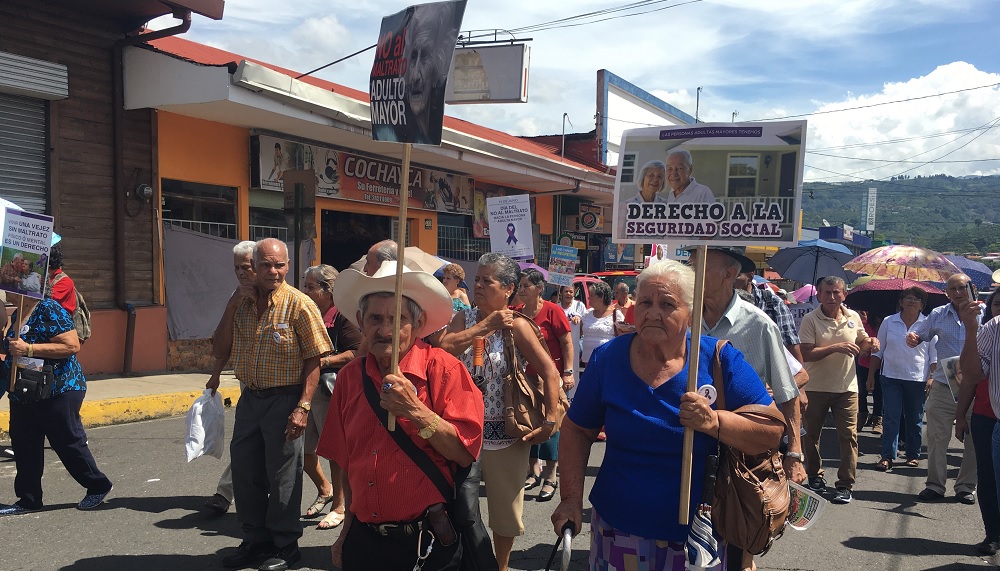
“Human rights are the direct expression of human dignity. Each person across the whole population must be able to enjoy these rights simply for being a human being, regardless of age, sex, race, religion, nationality, socioeconomic status or educational level” – Inter-American Convention on Protecting the Human Rights of Older Persons
Everyone has rights that must be guaranteed by the state. Yet there are gaps within the law that fail to put these into effect, especially for people over 60.
International instruments such as the Universal Declaration of Human Rights, the United Nations Principles for Older Persons, and the Madrid International Plan of Action on Ageing provide a framework for protecting older people. However, these instruments are not binding, meaning that compliance is not mandatory. To fully protect older people’s rights, we need to forge a global compliance tool that is mandatory in all countries.
The Inter-American Convention as a regional example
The Inter-American Convention on the Protection of the Human Rights of Older Persons is the first international treaty that fully regulates older people’s human rights. It is an agreement between American countries which only becomes mandatory if it is ratified by these countries.
The member states of the Organization of American States approved the Convention on 15 June 2015. So far, six countries have signed and ratified the treaty: Argentina, Bolivia, Chile, Costa Rica, El Salvador and Uruguay.
Key messages of the convention
- People’s sexual rights are maintained as we get older.
- The convention fosters a positive attitude and a dignified, respectful, and considerate treatment towards people over 60 years of age.
- As we get older we must continue to enjoy a full, independent and autonomous life, enjoying good health, safety, and inclusion, and active participation in society.
- The convention promotes the recognition of older people’s experience, wisdom, productivity and contribution to the development of society.
- The convention promotes active ageing for the entire population as a way to guarantee the rights of future older generations, that is, for the entire population that will reach older age in the short, medium and long term.
What do older people in Costa Rica have to say about the convention?
“Having a convention that must be respected supports Costa Rican law. Also, as it is an agreement between countries, it clarifies that the situation of older people must be a priority in the region,” said Guillermo, 56.
“The convention itself is a means to disseminate rights, hence the importance of making it known so that all people can access it,” said Sonia, 67.
“The convention ratifies rights that were already in place and puts others in very clear terms, for example [the right to] autonomy,” said Rosemary, 66.
“It seems to me that the convention is a legal support, both for us in the voluntary sector and at the national level. The downside is that even at the institutional level sometimes efforts are not made to promote it,” Virginia, 78.
What is the difference between the Inter-American Convention and an international convention?
The Inter-American Convention is the first step in the region to make countries responsible for the rights of older people. However, this is a global struggle and the Inter-American Convention should only be a model to promote an international UN convention.
The Inter-American Convention only protects countries within Latin America that are part of the Organization of American States. But since ageing is a global phenomenon, we all must fight for everyone equally.
There are countries that believe that an international convention is not necessary. They argue that the rights of older people are already protected in national legislation, but we know that what is not explicit in writing becomes invisible.
We need specific legislation that talks about our rights in older age. For many years it has been interpreted that human rights in general include older people, however there are still situations of violence and abuse in older age. That is why it must be made clear in an international document that our rights must be respected as we age.
Why an international convention for the rights of older people?
Rights do not change as we get older. Despite this, we are still subject to discrimination because of our age. A convention would force governments to:
- adopt non-discriminatory laws and assign budgets more fairly to all age groups
- collect data disaggregated by age to help political decision-making
- design programmes that benefit older people
- undertake national campaigns to reduce discrimination against older people and ensure dignified and respectful treatment
- provide a system to monitor government action and hold them accountable for their actions.
Civil society organisations and older people play a key role in demanding a UN convention on the rights of older people. Together, we can call on governments to sign it and ultimately help improve the lives of older people around the world.
AGECO is a member of the HelpAge global network.
